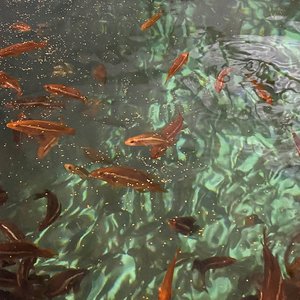Bente Ruyter, senior scientist at Nofima, has conducted research for many years to find out how farmed salmon can get a higher content of omega-3 in the body. One of these options is oil from modified canola.
In 2023, the Norwegian Food Safety Authority approved Aquaterra® omega-3 oil from genetically modified canola to be used in salmon feed. Canola is a variant of common rapeseed. This variant was developed by the Australian research organization CSIRO in collaboration with the company Nuseed and contains high levels of omega-3 fatty acids.
“This oil has been extracted,” said Bente Ruyter. “It means that it is extracted from the canola seeds and does not carry any of the plant’s genetic material that has been modified.”
“Global production of fish oil is stable and catching more wild fish is not sustainable. Therefore, fish oil is becoming less and less available for the aquaculture industry every year as the industry grows,” said Ruyter.
In 2000, 30% of salmon feed consisted of fish oil. In 2020, this was down to 10%. “Our research shows that it is not healthy for salmon to have such low levels of omega-3 in the feed. They become less robust and their flesh has poorer color. The industry has therefore started to increase the level of omega-3 fatty acids in the feed again,” Ruyter said.
Trials with canola oil
To document the properties of the canola oil in salmon, scientists carried out trials in freshwater, in closed tanks, and in net pens.
Omega-3 canola oil makes fish healthier than if they were only fed standard plant oil. Salmon also need a certain level of omega-3 in their feed for their muscles to get the delicate pink color. Nofima’s research also shows that the omega-3-rich canola oil reduced the prevalence and severity of dark melanin spots in salmon fillets.
“The production of genetically modified canola has great potential for growth, and will probably become an important new source of omega-3 in fish feeds,” said Ruyter. “It is now approved for use. Whether the industry uses, it is another matter. But I think it will force its way in.”
The research has been financed by the Norwegian Seafood Research Fund (FHF) in collaboration with the Institute of Marine Research, Nuseed and Mowi.
Reference
Bjarne Hatlen, Thomas Larsson, Tone-Kari Østbye, Odd Helge Romarheim, Laura Martinez Rubio, Bente Ruyter. Improved fillet quality in harvest-size Atlantic salmon fed high n-3 canola oil as a DHA-source. Aquaculture, Volume 560, 2022, 738555, ISSN 0044-8486, https://doi.org/10.1016/j.aquaculture.2022.738555













